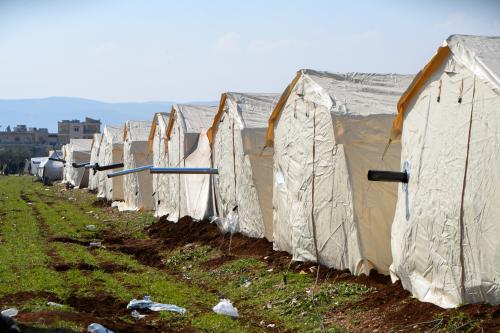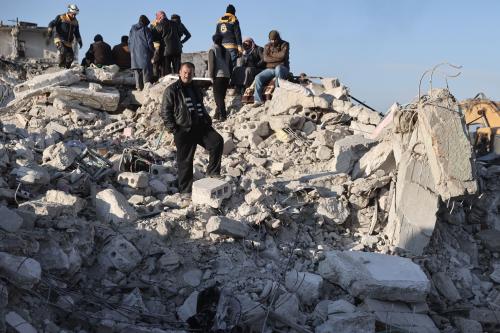2023
Syria’s 22 month-old civil war has resulted in at least 60,000 deaths, almost 500,000 Syrian refugees in neighboring countries and at least 2.5 million internally displaced persons inside the country. Infrastructure and housing have been destroyed on a massive scale. The destruction and displacement have political as well as humanitarian consequences, as those fighting increasingly define their interests in sectarian terms. Even as the conflict continues to rage, the international community is—or should be—planning for the future of Syria. As in many other crises, political decisions have humanitarian consequences, and sometimes humanitarian concerns drive political decisions. In the case of Syria, it is difficult to imagine stabilizing the country without an integrated understanding of these issues.
On January 14, the Brookings-LSE Project on Internal Displacement and the Saban Center for Middle East Policy at Brookings hosted a discussion to examine the current humanitarian and political situation inside Syria and its implications for the future. Panelists included Panos Moumtzis, regional coordinator for Syrian Refugees at the Office of the United Nations High Commissioner for Refugees (UNHCR), and Frederic Hof, senior fellow at the Rafik Hariri Center for the Middle East at the Atlantic Council and former special advisor for Transition in Syria at the U.S. Department of State. Senior Fellow Elizabeth Ferris, co-director of the Project on Internal Displacement, provided introductory remarks and moderated the discussion.
What’s Next for Syria: Humanitarian and Political Perspectives
Agenda
-
January 14
-
Panelists
FHFrederic Hof Senior Fellow, Rafik Hariri Center for the Middle East - The Atlantic CouncilPMPanos Moumtzis Regional Coordinator for Syrian Refugees - Office of the High Commissioner for Refugees
-

